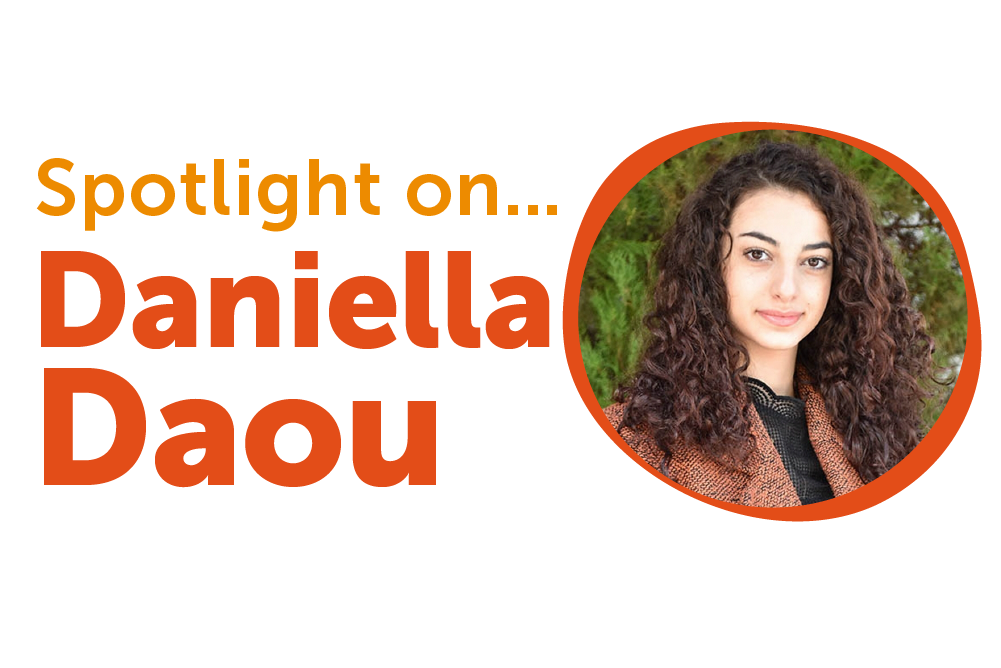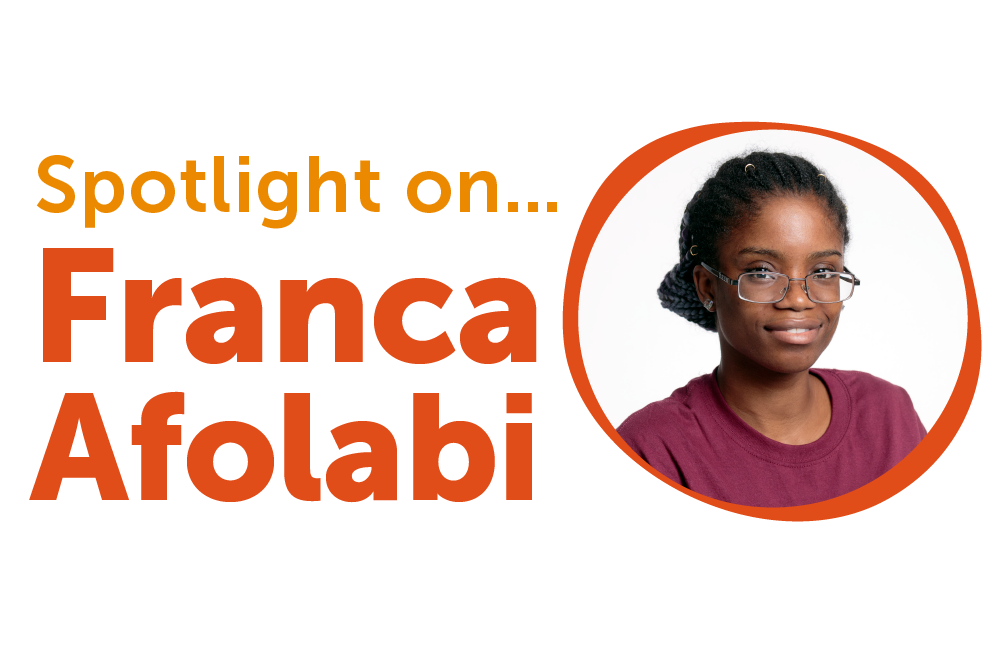
“Communicating with drawings is very powerful – children of all ages can interpret images”
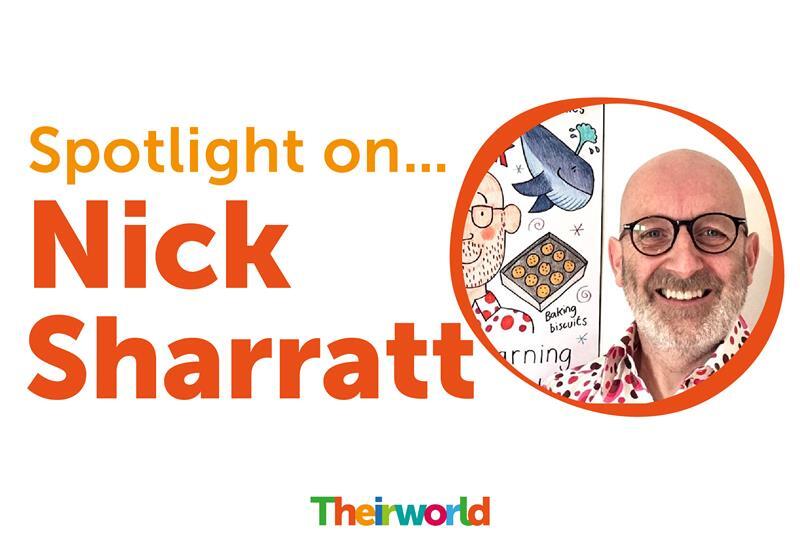
Spotlight On ...
Nick Sharratt - illustrator, children's author and Theirworld ambassador - talks about his own education experience and why he is passionate about campaigning for change.
Nick Sharratt is a renowned British illustrator and author of children’s books. He has written about 40 books and illustrated 250 others that have sold tens of millions of copies. He also cares deeply about the cause of quality education for every child and has been a Theirworld supporter and ambassador for several years.
In 2015, he provided illustrations for a teachers’ pack we produced to highlight the global education crisis. The following year, he travelled with Theirworld to Lebanon, where he taught Syrian refugee children how to express themselves through art.
When the pandemic shut down schools around the world, Nick invited families to share their children’s drawings as part of Theirworld’s #StillLearning campaign.
Here we talk to Nick in the latest in our Spotlight On … series, which features inspiring people from the world of education.
Describe yourself in no more than 10 words.
Image-making and storytelling is what I do.
What was your experience of education?
Because my family moved around quite a lot, I went to three primary schools and two secondary schools and I became quite used to the experience of being the new boy in class.
I loved primary school and I enjoyed two years at a comprehensive, where there were lots of clubs and extra-curricular activities to take part in. I then went to a more formal grammar school where the focus was very much on preparing for exams.
What is your favourite memory of your time in education?
During the two years at my comprehensive, lessons were done in a slightly experimental way, in that we were all working individually at our own pace.
I had the freedom to really push my art. I was able to illustrate every project I did with drawings, whether it was a science project or English or history. It was fantastic for me personally and it’s when my artistic skills really began to flourish.
I should also mention another very important day for me, when I was at primary school. I took a picture into class and my teacher, Mrs Crowther, thought it was good enough to be pinned up in the school hall. It stayed there for a whole term.
That was an incredible confidence-booster, because up to then I knew I enjoyed drawing but this made me feel I was good at it too. I was nine years old at the time. From then on my fate was sealed – I knew I was going to be an artist.
I’ll always be grateful to that teacher for her encouragement. This was in Nottinghamshire at a school called Abbey Gates County Primary and I’ve been back there to visit since, which has been a really nice thing to be able to do.
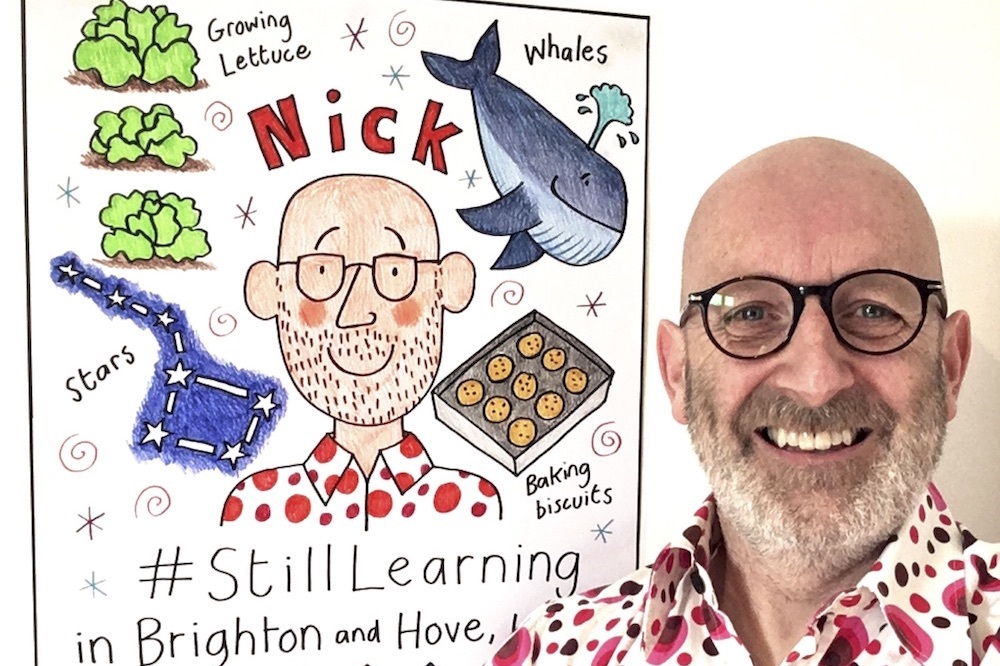
What is the greatest lesson you’ve learned outside the classroom?
Everything you do is a stepping stone to something else. I’ve learnt that in my career and in the rest of my life too, so it’s important to try to make the best of the opportunities that come your way, which I haven’t always realised myself.
Even if you don’t do something quite as you had expected or wanted to, it’s still a stepping stone, it still takes you somewhere else. So everything really does count.
I feel lucky that I’ve got to where I am. When I look back, it’s very much been a case of one thing leading to another, so really make the best of what you can.
Theirworld has enjoyed your support for several years. What have you found rewarding in your position as an ambassador?
It began when Sarah Brown (Chair of Theirworld) and her boys would come to my events in Edinburgh. We made contact and I volunteered my skills as an artist. I’ve contributed illustrations to a few of the projects and then it was an extraordinary thing to be invited on a trip to Lebanon in 2016.
I’d been to lots of schools in the UK, a range of different schools. But I’d never been in a situation like the one in Lebanon, so that was a fascinating and eye-opening experience for me.
It was a mixture of alarm and distress at the situation that the children are in over there, but it was also extraordinary to see the contributions being made at the camps where these children were given the best opportunity that they could under the circumstances.
My comfort zone is really me in my studio, a pad of paper in front of me and a pencil in my hand, so I was a bit nervous beforehand. But actually it was great to be able to spend time with these children. Although we didn’t speak each other’s language, we were communicating with drawings and that was very powerful.
Sometimes picture books and visual imagery can get pushed to one side when children start to read and write, which I think is a mistake. Children of all ages can use picture books and get a huge amount of benefit from being able to interpret and process visual images. It’s a really important form of communication.
The same goes for drawing and creating images, which again can get sidelined as a child progresses through school.
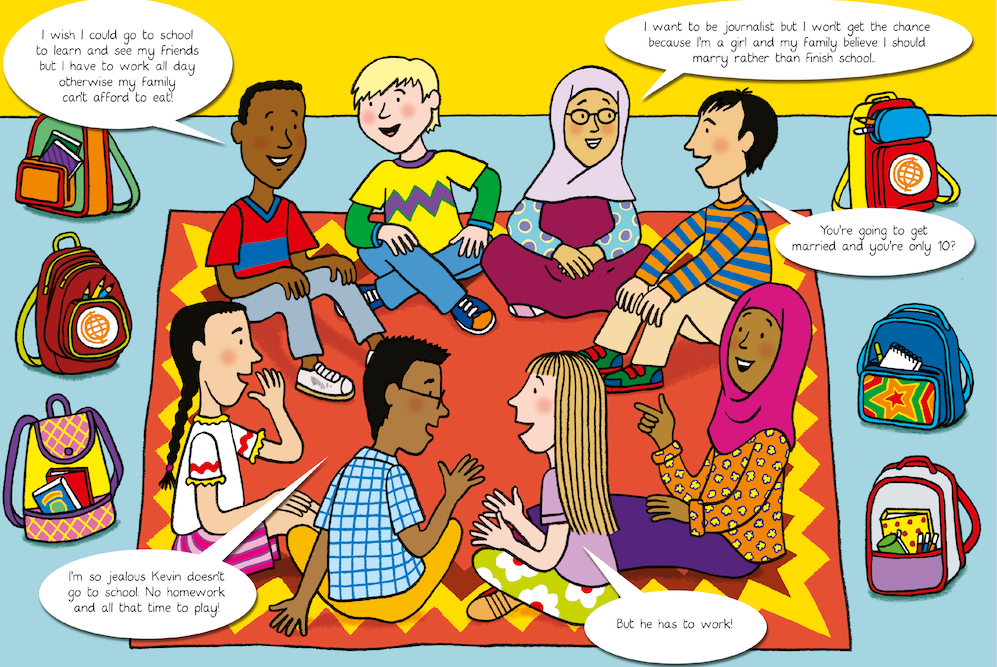
Nick drew this illustration for Theirworld’s teacher packs in 2015
How do you stay hopeful when the world’s problems seem too big to solve?
I am constantly struck by the mature outlook and level-headedness of the young people I meet. They seem much more together than I was at their age. I’m hopeful for the next generation – I think that they will have the wisdom to make the right decisions.
What makes campaigning rewarding?
It’s a bit like the stepping stone concept I spoke about before. If everybody can make some sort of contribution, no matter how small, then as a group we can move forward and make progress.
Sometimes I think drawing pictures seems like a very slight thing – but it all helps. One person can’t do it all, so if everybody uses their individual talents then it’s a team effort and together we can create change.
If you could make the case for education to a room full of world leaders, what would you say to them?
I’d tell them time is really running out. Prior to last year, nobody would have thought that it would be possible for us to make the drastic changes we’ve all had to make.
But we have been able to make them and surely we can make them with regards to education and children’s futures and all the other massive issues that are facing us. And now is absolutely the time.
More news

